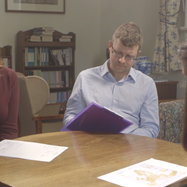DIUS announcement on access schemes to selective universities
28 September 2008
Responding to the announcement by the Secretary of State for Innovation Universities and Skills, John Denham MP, on university access courses at selective universities for students from challenging backgrounds, Director General of the Russell Group, Dr Wendy Piatt, said:
“Russell Group universities are constantly examining the most effective ways of ensuring that we identify the candidates with the potential to flourish on our courses and to give them real opportunities to demonstrate that talent and potential. The Russell Group has been working collectively for several years to share best practice and our universities are always looking for new and effective ways to link up with other institutions. For example several of our institutions allow students to take their first or second years at the local FE college.
“Our universities are already heavily involved in a range of access schemes which aim to inspire and encourage students from non-traditional backgrounds to consider the benefits of going to university*. Often Russell Group universities do not directly benefit from these activities as many pupils who receive this help apply elsewhere but we recognise our role in helping all students to fulfil their potential.
“All Russell Group universities have forged close and extensive relationships with local schools and FE colleges with thousands of staff and students volunteering to help raise attainment and aspirations. The Russell Group has also decided to hold special conferences to inform teachers and advisors about key aspects of our universities, particularly their application processes."
“But we are more than happy to discuss a range of options - including any ideas outlined in John Denham's speech - with DIUS and other key stakeholders to minimise further the barriers that face some students and to build on the work our institutions have been doing to link up with other universities and colleges. However, Russell Group universities are careful to ensure that the details and logistics of any new access scheme are thoroughly thought through before they are agreed to and implemented, to ensure that we achieve the fairest and most accurate means of identifying potential.“
Notes to Editors
(*) A selection of examples of access schemes from Russell Group universities:
- Access to Birmingham (A2B) provides supported entry routes into higher education. This scheme consists of an online study support module to help with academic writing skills, a student shadowing experience and an essay specific to the course applied for, set and marked by university tutors.
- Access to Bristol provides eight afternoon sessions designed to give prospective students a taste of being a student at the University. The sessions are aimed at year 12 students and priority is given to students who are the first in their family to go to university
- Cardiff University’s Step up to Health Compact Scheme operates over 3 years starting in year 11. It gives school pupils a number of opportunities to learn more about higher education and, in particular, about health courses and health professions. It includes a presentation evening, student mentors, summer school, mentor shadowing and a day conference on applying to university
- University of Edinburgh’s Pathways to the Professions encourages progression by under-represented school students into professional courses in Medicine, Veterinary Medicine and Law, and subsequently into the professions themselves. The programme of activity was initiated and developed from 2001/02 across all 46 state schools in Edinburgh and the Lothians and has over 600 school students registered. Pathways to Law has been extended to universities across the country, including the University of Leeds, the London School of Economics & Political Science, University of Manchester, University of Southampton and University of Warwick.
- The King’s College London Access to Medicineteam works to encourage and enable young people from eligible areas to study at medical school or to train for careers in the health service or biomedical sciences. It includes the Extended medical Degree Programme which is a six year degree programme for students from disadvantaged backgrounds in targeted inner London boroughs to become doctors.
- Access to Leeds is the University of Leeds’ alternative entry scheme, offering special consideration to applicants from disadvantaged backgrounds.
- The University of Liverpool runs various 1+3 and 2+2 foundation courses with local FE colleges as progression opportunities into university degrees. These include degree programmes in medicine and dentistry, science and engineering, computer science and information systems, earth sciences, geography, mathematics and physical sciences.
- The Manchester Access Programme is a structured scheme for local post-16 students who meet specific academic and background criteria. The aim of the programme is to support entry to The University of Manchester, or another research intensive university, through the completion of a portfolio of work demonstrating specific knowledge and skills. MAP gives students the opportunity to show their potential through a series of activities and tasks. Students who successfully complete the programme will have a portfolio of additional evidence which the University will use when making an offer of a place.
- The PARTNERS programme at Newcastle University began in 1999 as a programme for state schools and colleges in Tyneside and Northumberland. It aims to increase the aspirations of students from disadvantaged backgrounds and provide a supported entry route into university. University student volunteers who participate in PARTNERS’ give talks in schools and colleges on course choices, completing UCAS forms and student shadowing.
- Queen’s University Belfast’s highway to Science and Engineering is a one year programme designed to provide those from disadvantaged backgrounds who have just failed to meet their required grades a supported route into science or engineering degree courses. This is available for students from schools associated with the ‘Discovering Queen’s’ scheme. Successful completion of this foundation programme leads to the awarding of a Foundation Certificate and entry to certain science and engineering courses.
- Sheffield's Outreach and Access to Medicine Scheme (SOAMS) provides support and guidance to local Year 9-13 students with an interest in medicine or science, through a range of programmes and activities aimed at raising awareness, aspirations and levels of achievement. Students who have completed the scheme are eligible for a guaranteed interview at Sheffield's School of Medicine.
- The University of Warwick’s 2+2 Degree Programme provides a path for students to gain a degree through two years of study at a local college and a further two years at the University. This programme is specifically designed for adults who lack formal qualifications and who wish
-
Hamir Patel
hamir.patel@russellgroup.ac.uk
020 3816 1316
-
Hollie Chandler
Hollie.Chandler@russellgroup.ac.uk
020 3816 1307
 X
X


